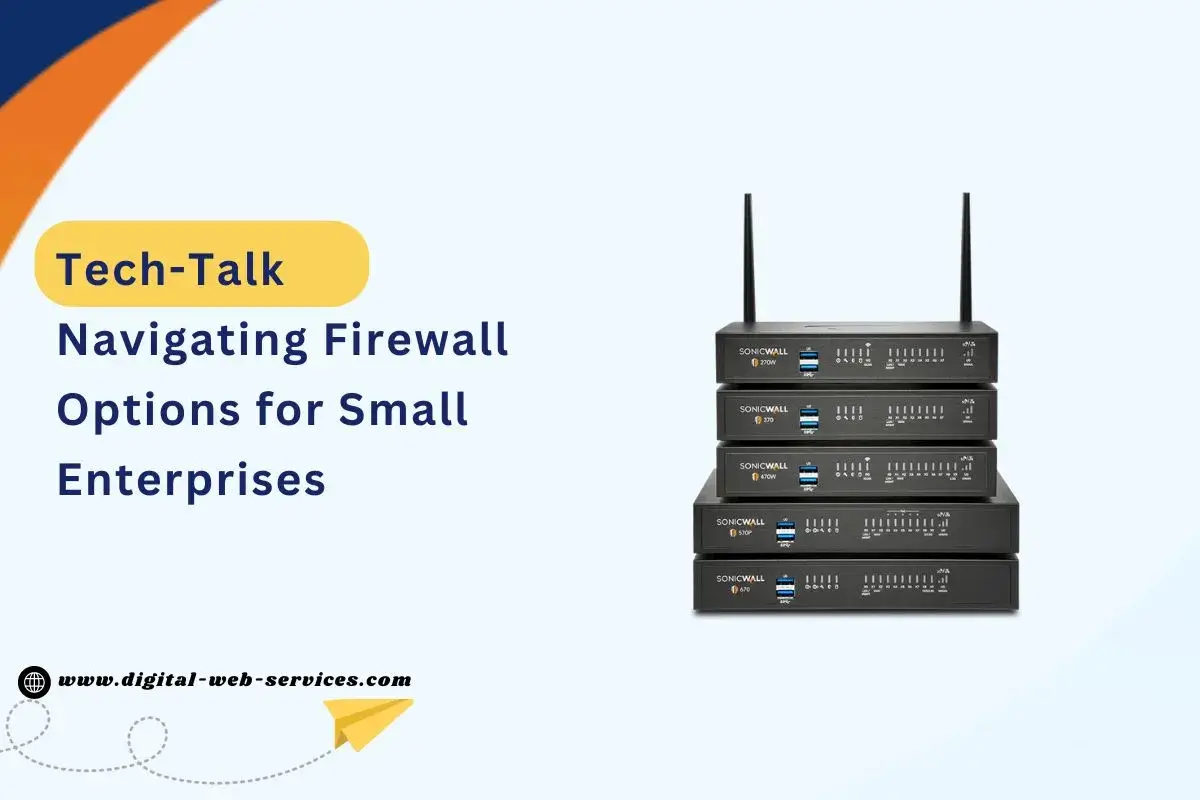
In today’s digital landscape, cybersecurity is a top priority for businesses of all sizes. For small enterprises, finding the right firewall is crucial to protect sensitive data, maintain network integrity, and ensure uninterrupted operations. However, with a plethora of firewall options available, choosing the right one can be daunting. This guide will help small businesses navigate their firewall choices and select the best fit for their needs.
Understanding the Role of Firewalls in Cybersecurity
A firewall acts as a barrier between your internal network and external threats from the internet. It monitors incoming and outgoing traffic based on predetermined security rules, blocking or permitting data flows to protect the network from cyber threats. For small businesses, firewalls are essential in preventing unauthorized access, malware, and other cyberattacks that could lead to data breaches or operational disruptions. For small enterprises looking for a reliable and scalable solution, the SonicWall Firewall TZ Series offers robust security features and ease of management, making it an excellent choice to protect against evolving cyber threats.
Types of Firewalls: Which One is Right for You?
There are several types of firewalls, each with its own strengths and weaknesses. The choice depends on the specific needs and resources of your enterprise.
- Packet-Filtering Firewalls: These are the most basic type of firewalls, filtering traffic at the network layer based on IP addresses, ports, and protocols. While cost-effective and simple, they offer limited protection as they don’t inspect the data within packets.
- Stateful Inspection Firewalls: More advanced than packet-filtering, these firewalls track the state of active connections and make decisions based on the context of the traffic. They provide better security by analyzing the traffic flow and ensuring only legitimate packets pass through.
- Proxy Firewalls: Acting as intermediaries between users and the internet, proxy firewalls filter traffic at the application level. They offer a higher level of security by inspecting the contents of the packets. However, they can be slower and more resource-intensive, making them less suitable for businesses with limited bandwidth.
- Next-Generation Firewalls (NGFWs): Combining traditional firewall capabilities with additional features like deep packet inspection, intrusion prevention systems, and application awareness, NGFWs offer robust protection against sophisticated threats. They are ideal for small businesses needing comprehensive security solutions, though they can be more expensive.
- Unified Threat Management (UTM) Devices: UTMs are all-in-one solutions that integrate firewall capabilities with other security functions, such as antivirus, anti-spam, and content filtering. They are easy to manage and provide a broad spectrum of protection, making them suitable for small businesses with limited IT resources.
Key Considerations When Choosing a Firewall
When selecting a firewall for your small business, consider the following factors:
- Budget: Firewalls range from free software options to high-end hardware solutions. Determine your budget and find a firewall that provides the best balance of cost and features for your needs.
- Scalability: As your business grows, so will your network and security needs. Choose a firewall that can scale with your business to avoid frequent replacements.
- Ease of Management: For small businesses with limited IT expertise, user-friendly firewalls with intuitive management interfaces are preferable. Consider options that offer remote management capabilities for added convenience.
- Performance: Ensure the firewall can handle your current and projected network traffic without causing significant latency. Performance issues can impact productivity and customer experience.
- Compliance Requirements: Depending on your industry, there may be specific regulations that dictate certain security measures. Choose a firewall that helps you stay compliant with relevant laws and standards.
Making the Final Decision
Selecting the right firewall is a critical step in safeguarding your small business’s network. Start by assessing your security needs, budget, and growth plans. Then, compare different firewall types and their features against your requirements. Don’t hesitate to consult with cybersecurity experts if needed. Choosing the right firewall is crucial for safeguarding your business from cyber threats. By thoughtfully evaluating your firewall options, you can effectively protect your small enterprise from the ever-changing threat landscape, enabling you to concentrate on growth and achieving your business goals.
Digital Web Services (DWS) is a leading IT company specializing in Software Development, Web Application Development, Website Designing, and Digital Marketing. Here are providing all kinds of services and solutions for the digital transformation of any business and website.










